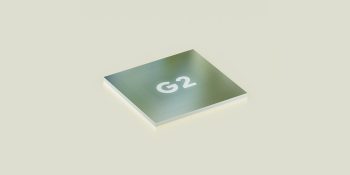
The Pixel 7a and Fold are Impressive, but Google Tensor Holds them Back
The pending arrival of Google’s first batch of devices for 2023 has undeniably built up a lot of hype and fanfare around the company’s Pixel brand, especially for Google loyalists ands Android fans curious about what the Big G has in store for 2023. As such, Google I/O will ultimately serve as a platform for some significant “firsts” for the Pixel line – the debut of Google’s flagship foldable, as well as a significant upgrade for the Pixel A-series in terms of hardware and overall performance.
While we are excited as well, it should be said that there are some reservations to be kept in mind when talking about these two devices. It’s highly expected that both the Pixel 7a and Fold will run on Google’s Tensor G2 chipset, which has seen some mixed reactions since its debut on the Pixel 7 series. Google does take price in its in-house chipsets, but there are a couple of things that need to be said about the Tensor G2.
Battery Endurance
Speaking from a personal standpoint, I can probably say that battery endurance is one of the biggest concerns I’ve had with the Tensor G2. Upon using my Pixel 7 for the first couple of months, I’ve had generally decent battery life, although in terms of SoT, I noticed that it was considerably less compared to what my older Pixels were able to achieve, and this includes the older Snapdragon-powered models (and even the Pixel 6).
It then leads me to have some concern regarding the Pixel 7a’s battery performance, as well as that of the Fold’s. Given the smaller battery capacity on the 7a, and the larger display of the Fold, it’s very interesting to see how the Tensor G2 will be able to handle the power requirements of both devices. of course, my battery experience isn’t universal and your mileage may vary, but in general the tensor G2 could definitely use a boost in endurance.
Thermal Management
This same concern extends to the Pixel 7’s thermal management, which I noticed during my time with the phone. While it was understandable that the phone would get considerably warm during gaming, it was concerning that this habit of heating up would also rear its ugly head even during simpler tasks, such as web browsing and social media use on WiFi, and prolonged screen usage. By comparison, even my Pixel 6 didn’t get this warm.
Given that the same chip experiencing this issue will go inside the 7a and Fold, one can only hope that Google somehow manages to address this, which brings us to our next topic of discussion.
Software Updates
If there’s ever one undeniable strength of Pixel phones, it would be Google’s regular monthly software updates. While I have to admit that some past updates have caused a bit of unexpected trouble (Pixel 6 connectivity bug, anyone?), it should be said that a lot of the time, Pixel updates really do come in handy in addressing performance issues.
Which is why emphasis should be given with the overall stability of the Tensor G2 – given Google’s nature of issuing regular feature drops, bug fixes and security patches for its phones, one can hope that the Tensor G2’s heating can be addressed via software fixes. Historically, there have sometimes been instances of “rogue” app or system updates which might cause a phone to work harder than it normally has to, resulting in less-than-ideal battery situations. It’s in situations like these where software improvements can be a game-changer.
Final Thoughts
With all that being said, I’m personally excited to see what Google brings to the table once Google I/O 2023 happens. As mentioned earlier, it’s a significant year for Google, especially given the fanfare around the upcoming additions to the Pixel hardware line-up. I (along with a ton of other Pixel fans) certainly hope that the Pixel 7a and Fold turn out to be terrific, and with the Tensor G2 inside, it doesn’t hurt to be a bit cautious.